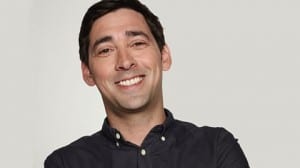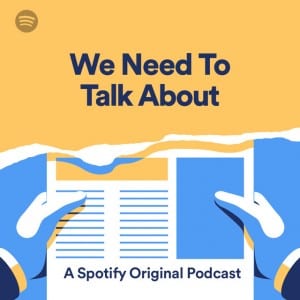This section will outline programmes that are similar to ours, both on TV and radio.
The News Quiz – BBC Radio 4 http://www.bbc.co.uk/programmes/b098ns2s
 The news quiz makes use of a very ‘official’ sounding brass intro, along with a very short introduction as it announces whos on the programme but then doesn’tt explain what they’re job roles are e.g If one of the contributors is a comedian or the editor of the Times etc, this is done so that timing is not such an issue. However, another downside of this is that can also be hard in the 30 minutes to work out whos who due to the lack of introduction. One thing that the news quiz does do well is the scripted outros of topics that they have been talking about, they are heavily scripted and this something that we should consider doing ourselves,
The news quiz makes use of a very ‘official’ sounding brass intro, along with a very short introduction as it announces whos on the programme but then doesn’tt explain what they’re job roles are e.g If one of the contributors is a comedian or the editor of the Times etc, this is done so that timing is not such an issue. However, another downside of this is that can also be hard in the 30 minutes to work out whos who due to the lack of introduction. One thing that the news quiz does do well is the scripted outros of topics that they have been talking about, they are heavily scripted and this something that we should consider doing ourselves,
Fighting Talk – BBC Radio 5 Live http://www.bbc.co.uk/programmes/b0070hvs
Fighting talk is a 5 man panel where the panel discusses sports news and sports-related topics, it makes use of significant music beds and at times a live theatre audience with them being able to participate in the show by asking questions or submitting answers. The answers range from serious to completely false due to it being opinion based rather than it being based on what someone says or does. The format is also different as it lasts an hour rather than the 30 minutes of the news quiz, it does, however, make use of asking people questions individually and points system due to it being a ‘game show’. What i personally will take from this is the use of ad lib on the hosts part and short snappy stings that accompany items such as sound effects or music beds, as I feel that we could easily create these.
The Guardian UK: Politics Weekly – The Guardian https://www.theguardian.com/politics/series/politicsweekly
Politics weekly is a weekly podcast that discusses two to three topics that have occurred in the news that week, with the one I listened to being about Tax evasion. This podcast despite not being at all humour based was still relevant due to its content and political talking. What I took from it was the relative simplicity of the questions that were being asked that prompted a discussion from, meaning that we do not need to do much in our own podcast to prompt this. I also found the hosts ability to drag people into the conversation quite useful as I will need to make sure that James does this himself and makes people that aren’t contributing contribute.
We Need to Talk About – Spotify (Produced by Whistledown Productions) https://open.spotify.com/show/50XWI8h417xGuMQ5Vp4lpI
We Need to Talk about is a weekly podcast roughly 45 minutes in length and is similar to what our idea is. It is a 4 person panel (including the presenter) show that discusses three topics that have occurred within that week, hence the name we need to talk about, in terms of the makeup of the panel it includes at least 1 journalist, 1 comedian and one highbrow political name, with recent bookings being: Alistair Campbell, David Lammy and Russel Kane. It makes use of clips in the intended manner we want to do ourselves by playing the clips in then asking for comment around this. It also struck me that the panel are all very opinionated characters that vary in their beliefs and the discussion can at times become quite controversial, again we need to do this ourselves, the final thing of note was how they made use of music segues to effectively transition from topics.
The Adam Buxton Podcast- Spotify https://open.spotify.com/show/1amnggjPO42W9l9R5xXodQ
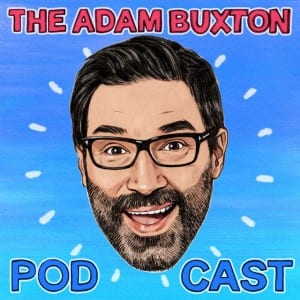 The Adam Buxton is Adam Buxton’s own podcast with him talking to people about their lives and other ramblings. It is entirely conversation based with him talking to guests about anything varying from serious issues that the person has faced to funny elements, yet whilst this is being talked about is also relatable and we must remember that our own podcast should be relatable to the audience that we’re targeting. Again Buxton utilises simple but effective questions which make an interesting and listenable conversation. On top of this it is also rather funny with the conversation doing most of the work to make it so funny. Despite it not being for our target audience there is still a lot of elements that we can take from this.
The Adam Buxton is Adam Buxton’s own podcast with him talking to people about their lives and other ramblings. It is entirely conversation based with him talking to guests about anything varying from serious issues that the person has faced to funny elements, yet whilst this is being talked about is also relatable and we must remember that our own podcast should be relatable to the audience that we’re targeting. Again Buxton utilises simple but effective questions which make an interesting and listenable conversation. On top of this it is also rather funny with the conversation doing most of the work to make it so funny. Despite it not being for our target audience there is still a lot of elements that we can take from this.
No Such Thing as a Fish- Spotify https://open.spotify.com/show/4pqW0HTIeZcx7vqHpwzmZj
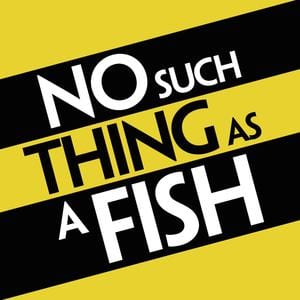 No Such Thing as a Fish is a podcast based on weird news stories and random facts which the panel then have a conversation around this topic. It is panel based on a 4 person panel with no official mediator. The conversation is then based on this fact with the other panel members stating related facts. At times it does feel very random and spontaneous but this is what makes it funny and easy to listen to and this what we should be hoping to achieve with our podcast,
No Such Thing as a Fish is a podcast based on weird news stories and random facts which the panel then have a conversation around this topic. It is panel based on a 4 person panel with no official mediator. The conversation is then based on this fact with the other panel members stating related facts. At times it does feel very random and spontaneous but this is what makes it funny and easy to listen to and this what we should be hoping to achieve with our podcast,
The Late Night Alternative with Ian Lee – Talk Radio http://talkradio.co.uk/late-night-alternative-iain-lee
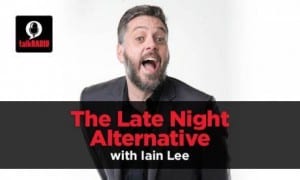 The Late Night Alternative is a more traditional podcast that is not a stand-alone item, instead, it is the best bits of Lee’s previous show meaning its subjects can vary hugely from episode to episode with items such as the discussing the news and newspaper headlines, random games that can involve the listeners via them calling in, or listeners contributing to a discussion by speaking about their own experiences. The programme as a whole is not afraid to be opinionated and controversial with Lee voicing his own opinions. Ultimately what we should be taking from this is that they aren’t scared to be opinionated and we should be encouraging this within our own podcast.
The Late Night Alternative is a more traditional podcast that is not a stand-alone item, instead, it is the best bits of Lee’s previous show meaning its subjects can vary hugely from episode to episode with items such as the discussing the news and newspaper headlines, random games that can involve the listeners via them calling in, or listeners contributing to a discussion by speaking about their own experiences. The programme as a whole is not afraid to be opinionated and controversial with Lee voicing his own opinions. Ultimately what we should be taking from this is that they aren’t scared to be opinionated and we should be encouraging this within our own podcast.
Chris Moyles- Radio X http://www.radiox.co.uk/radio/shows-presenters/chris-moyles/highlights/the-chris-moyles-show-on-radio-x-podcast
 Chris Moyles podcast is similar to that of Ian Lee’s with it being an adaptation of his original show with other bits included. Moyle’s style is team based on the whole team being involved in the podcast meaning that there is a plethora of voices and in-jokes between the team that produces Chris Moyle’s programme. The programme makes use of both stupid jokes and reoccurring themes from others. It is also very easy to relate to what is being discussed meaning that when stupid topics are discussed it makes it very easy to laugh. Ultimately this is a different style from what we want to do however what can be taken from this is the way in which there are a plethora of voices however they don’t jump in over one another and its easily relatable style.
Chris Moyles podcast is similar to that of Ian Lee’s with it being an adaptation of his original show with other bits included. Moyle’s style is team based on the whole team being involved in the podcast meaning that there is a plethora of voices and in-jokes between the team that produces Chris Moyle’s programme. The programme makes use of both stupid jokes and reoccurring themes from others. It is also very easy to relate to what is being discussed meaning that when stupid topics are discussed it makes it very easy to laugh. Ultimately this is a different style from what we want to do however what can be taken from this is the way in which there are a plethora of voices however they don’t jump in over one another and its easily relatable style.
